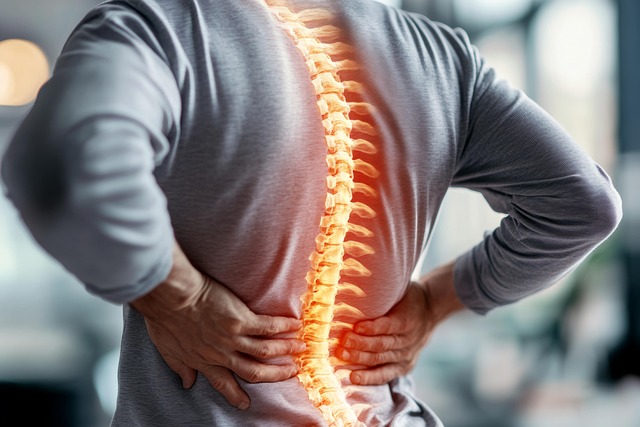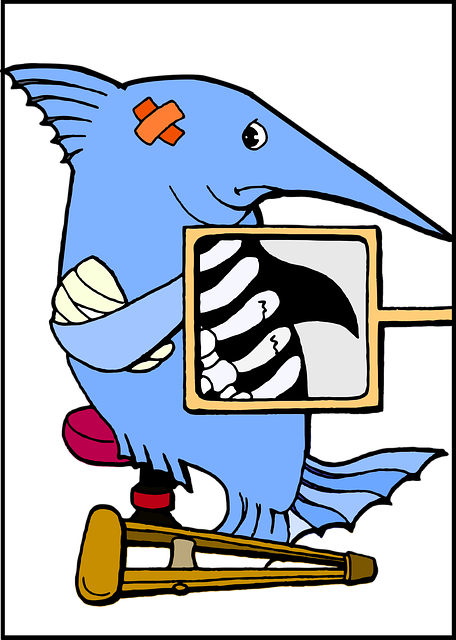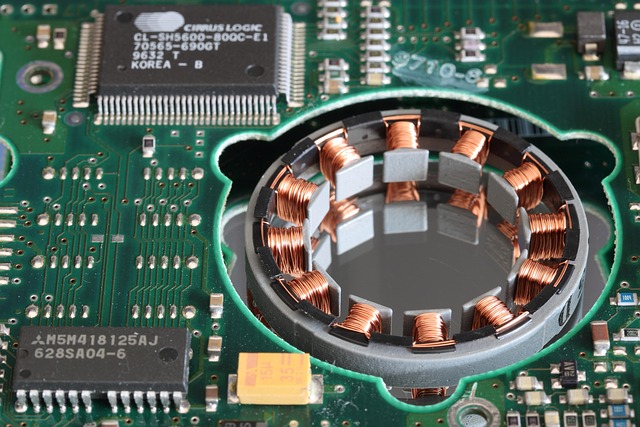Chiropractic management is a non-surgical, holistic approach to treating herniated discs caused by car crashes. By focusing on spinal adjustments and combining techniques like heat/ice therapy, exercises, and lifestyle guidance, chiropractors reduce nerve pressure, alleviate symptoms, and support natural healing. Prompt post-crash care is crucial, with many choosing chiropractic management over surgery. This method enhances flexibility, posture, and stability while empowering patients to manage their conditions through informed decision-making for effective, long-term recovery from disc injuries.
Recovering from a disc injury without surgery is a viable option, especially after a car crash. This article explores chiropractic management as a leading approach in treating herniated discs, offering a natural and effective alternative to invasive procedures. We delve into specific techniques and strategies for optimal post-car crash recovery, emphasizing non-surgical options that can restore mobility and alleviate pain. By understanding chiropractic care, individuals can make informed decisions about their disc injury rehabilitation journey.
- Understanding Chiropractic Management for Herniated Discs
- Post-Car Crash Recovery: A Focus on Non-Surgical Options
- Effective Techniques for Disc Injury Rehabilitation
Understanding Chiropractic Management for Herniated Discs

Chiropractic management is a non-surgical approach often sought after for individuals suffering from herniated discs, especially following a post-car crash injury. This method focuses on adjusting and manipulating the spine to reduce pressure on affected nerves and promote healing. Chiropractors are trained to diagnose and treat such conditions, offering a gentle yet effective way to manage pain and restore function without invasive procedures.
The process typically involves a series of adjustments or manipulations, often combined with other therapeutic techniques like heat/ice therapy, exercises, and lifestyle advice. By targeting the spine and surrounding structures, chiropractic management aims to alleviate symptoms, reduce inflammation, and support the body’s natural healing mechanisms for herniated discs post-car crash.
Post-Car Crash Recovery: A Focus on Non-Surgical Options

After a car crash, proper and prompt attention is crucial for individuals dealing with disc injuries, especially when considering non-surgical options for recovery. Many victims often turn to chiropractic management as a preferred alternative to surgery. Chiropractic care plays a significant role in treating herniated discs by focusing on the spine’s alignment and mobility. Skilled chiropractors employ various techniques like adjustments, manipulations, and specialized exercises to reduce pain, promote healing, and restore function.
Effective chiropractic management can address the underlying causes of disc injuries without the need for invasive procedures. This holistic approach not only provides relief from acute symptoms but also equips patients with tools to manage their condition in the long term. By combining manual therapies with patient education, chiropractors enable individuals to navigate post-car crash recovery, ensuring a more comfortable and efficient journey towards full rehabilitation.
Effective Techniques for Disc Injury Rehabilitation

Many individuals suffering from disc injuries, especially those resulting from post-car crash incidents, find effective recovery through chiropractic management. This approach focuses on non-invasive techniques to alleviate pain and promote healing. Chiropractic care often involves adjustments to the spine, which can help reduce pressure on the affected discs and improve their stability. Additionally, therapists may incorporate exercises tailored to strengthen core muscles, enhancing overall spinal support and reducing the risk of further injury.
For herniated discs, a multi-faceted approach is key. Besides chiropractic management, physical therapy plays a significant role in recovery. Exercises targeting specific muscle groups surrounding the spine can help improve flexibility, posture, and stability. Patient education is also crucial; understanding the causes and prevention of disc injuries enables individuals to make informed decisions regarding their health. This holistic rehabilitation process empowers patients to manage their conditions effectively without resorting to surgery.
In the quest for effective disc injury recovery without surgery, especially post-car crashes, chiropractic management stands out as a reliable non-surgical option. Understanding the role of chiropractic care in managing herniated discs and utilizing proven rehabilitation techniques can significantly enhance patient outcomes. For those seeking alternative solutions to surgical procedures, these methods offer a promising path to pain relief and improved mobility.














